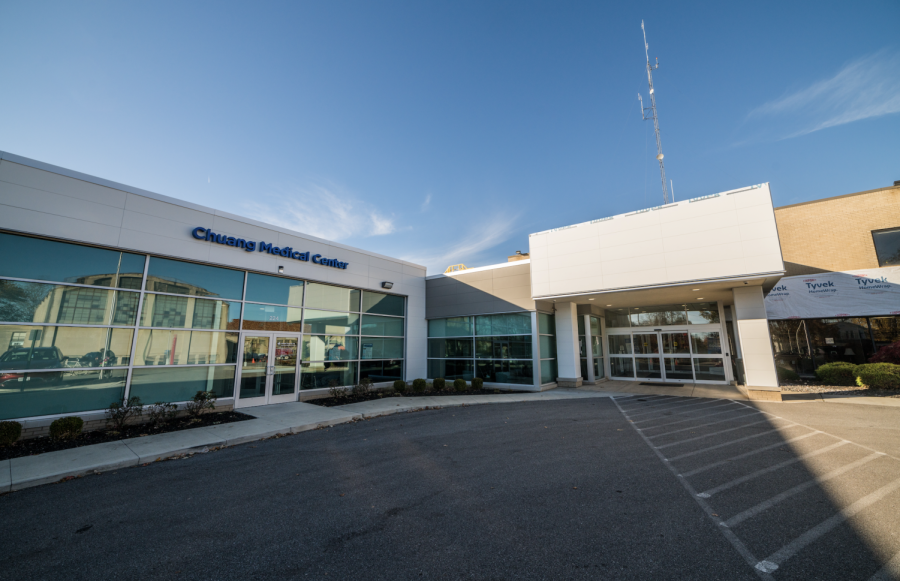Mercy Health – Allen Hospital Holds Free Mammogram Clinic for College Faculty and Staff
Mercy Health – Allen Hospital held a mammogram clinic for faculty and staff and their spouses.
On Tuesday, Wednesday, and Thursday of this week, Mercy Health – Allen Hospital offered scheduled mammograms to both current and former Oberlin College faculty and staff and their spouses. These slots were reserved by the Oberlin Department of Human Resources.
According to Oberlin’s Chief Human Resources Officer Joe Vitale, this scheduled mammogram clinic happens annually during Breast Cancer Awareness Month, but Oberlin faculty and staff always have access to these services, which are covered by the school’s employee insurance plan.
“For preventative mammograms, there is no cost for our employees or their dependents who are covered under our health care plan,” Vitale wrote in an email to the Review.
According to Dr. Mita Patel, surgical oncologist and medical director of the Mercy Health Breast Program, the difference between the event this week and normal care is the specific appointment slots, which decrease wait times. With the usual walk-in services, the wait time can be unpredictable.
Patel stressed the importance of mammograms as preventative care.
“Mammograms save lives,” Patel said. “Early-caught breast cancers are treatable and most likely curable. So the reason to get a mammogram … once a year is to hopefully find a cancer before it’s gotten into its advanced stages.”
Mercy Health – Allen Hospital is well equipped to help those at risk of breast cancer with new 3D imaging technology and genetic testing available to identify high-risk patients.
“[People] who do not have a family history and no other identified high-risk factors … should start getting mammograms at the age of 40 and every single year after,” Patel said.
Patel also offered clarifications to common misconceptions. For example, breast cancer risk factors can actually come from both sides of the family, though many overlook their fathers’ side. Patel further highlighted that people without a family history of breast cancer are still susceptible to it..
“Most [people] who do get breast cancer, upwards of 80 percent, do not have a family history,” Patel said.
Recently, the College switched to a new high-deductible health care plan under Medical Mutual of Ohio for its non-union employees.
Associate Professor of Sociology and Comparative American Studies and Director of Accreditation and Assessment Daphne John, who has been at Oberlin for 31 years feels that the new plan is comparable in cost to the last plan, the most notable difference being that patients now have to pay for services upfront.
John feels that while the Oberlin faculty and staff health care plan might be marginally more expensive than the previous system, the problem is more nationwide than anything else.
“When we look at health care and the cost of health care in the United States, and we compare ourselves to other countries, the United States really is relatively draconian,” John said. “We treat health — well, we don’t treat it as human. We treat it as a commodity market. That’s the larger problem. And Oberlin as an employer has to make sense of that.”







